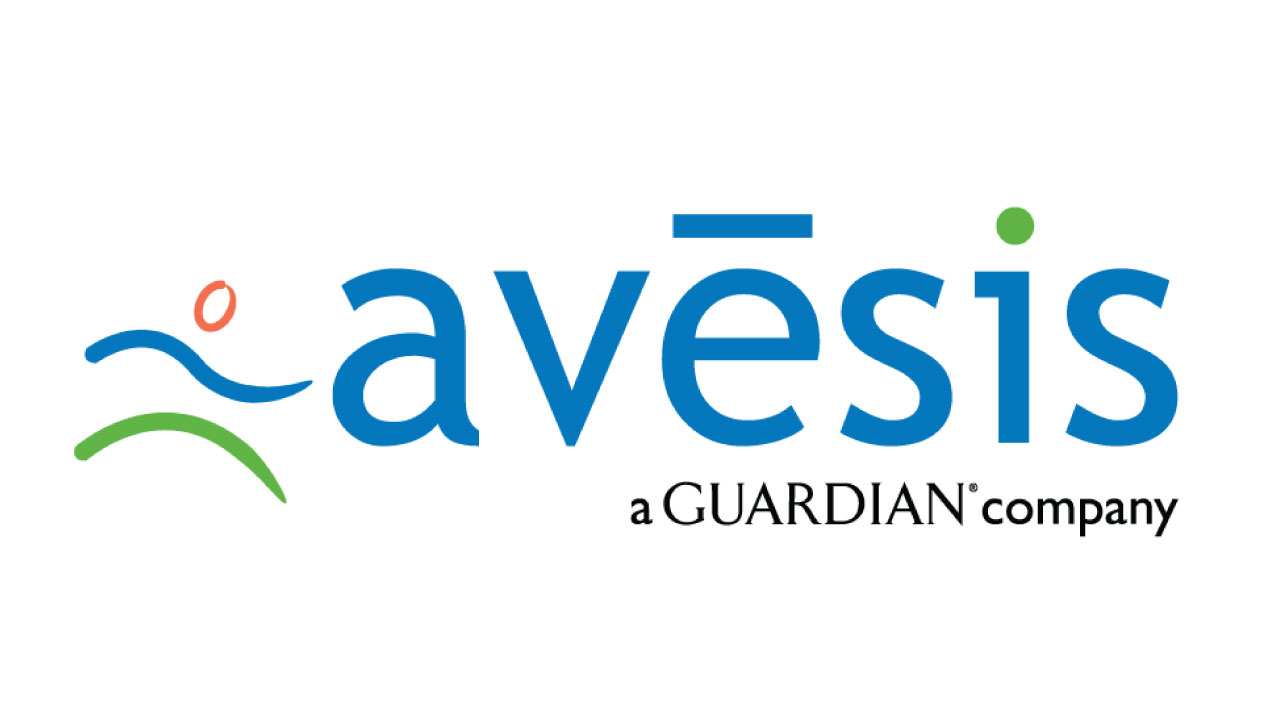Home>Finance>What Jobs Can You Get With An Accounting Degree


Finance
What Jobs Can You Get With An Accounting Degree
Modified: December 30, 2023
Explore various career opportunities in the field of finance with an accounting degree. Find out the diverse range of jobs you can pursue, leveraging your knowledge and skills in finance.
(Many of the links in this article redirect to a specific reviewed product. Your purchase of these products through affiliate links helps to generate commission for LiveWell, at no extra cost. Learn more)
Table of Contents
- Introduction
- Overview of Accounting Degree
- Job Opportunities in Public Accounting
- Job Opportunities in Corporate Accounting
- Job Opportunities in Government Accounting
- Job Opportunities in Nonprofit Accounting
- Job Opportunities in Financial Planning and Analysis
- Job Opportunities in Auditing
- Job Opportunities in Taxation
- Job Opportunities in Forensic Accounting
- Job Opportunities in Consulting
- Conclusion
Introduction
Obtaining an accounting degree opens up a wide range of job opportunities in the field of finance and beyond. Accounting professionals play an essential role in managing financial records, analyzing data, and providing valuable insights for decision-making. The demand for individuals with accounting expertise continues to grow, making it a highly sought-after degree.
This article will explore the various job opportunities available to individuals with an accounting degree. From public accounting firms to corporate finance departments, government agencies to nonprofit organizations, the possibilities are vast. Whether you prefer crunching numbers, uncovering financial discrepancies, or providing strategic financial advice, there is a job to suit your interests and skills.
In addition to traditional accounting roles, an accounting degree can also lead to positions in financial planning and analysis, auditing, taxation, forensic accounting, consulting, and more. The versatility and transferability of an accounting degree make it a valuable asset in today’s competitive job market.
Throughout this article, we will delve into the various job opportunities within the accounting field, providing insights into the responsibilities, skills required, and potential career paths. Whether you are a recent graduate seeking your first job or an experienced professional looking to advance your career, this guide will serve as a valuable resource in exploring the vast array of possibilities that await you with an accounting degree.
Overview of Accounting Degree
An accounting degree is a comprehensive program that equips students with the knowledge and skills needed to navigate the complex world of finance and accounting. The curriculum typically covers subjects such as financial accounting, managerial accounting, taxation, auditing, and business law.
Students pursuing an accounting degree gain a deep understanding of financial principles, accounting standards, and regulatory frameworks. They develop proficiency in financial analysis, data interpretation, and the use of accounting software and technologies.
Accounting degree programs often incorporate practical learning experiences, such as internships or cooperative education opportunities, allowing students to apply their knowledge in real-world settings. Additionally, many programs offer specialized tracks or concentrations, enabling students to focus on specific areas of accounting that align with their interests and career goals.
By earning an accounting degree, graduates gain a strong foundation in accounting principles, financial reporting, budgeting, and forecasting. They also develop critical thinking, problem-solving, and communication skills, which are essential for success in the accounting profession.
Furthermore, an accounting degree provides graduates with eligibility to pursue professional certifications such as Certified Public Accountant (CPA), Certified Management Accountant (CMA), or Certified Internal Auditor (CIA). These certifications enhance career prospects, increase earning potential, and signify a higher level of expertise and credibility in the field.
Overall, an accounting degree offers a well-rounded education in finance and accounting, preparing individuals for a wide range of career opportunities in both the public and private sectors.
Job Opportunities in Public Accounting
Public accounting firms provide a range of services to clients, including audits, tax preparation, financial consulting, and advisory services. These firms often have multiple departments, each specializing in a different area of accounting.
One of the most common job opportunities in public accounting is that of an auditor. Auditors examine financial records, ensure compliance with accounting standards, and identify any potential fraud or misstatements. They play a crucial role in providing assurance to stakeholders regarding the accuracy and reliability of financial information. Auditors may work on audits of public companies, privately held businesses, or government organizations.
Tax professionals are another integral part of public accounting firms. They assist individuals and businesses with tax planning, preparation, and compliance. Tax professionals stay informed about changes in tax laws and regulations, provide guidance on optimizing tax liabilities, and help clients navigate complex tax issues.
Public accounting firms also offer opportunities in consulting and advisory services. Consultants help organizations improve their financial performance, enhance operational efficiency, and address complex business challenges. They provide strategic advice, financial analysis, and assistance in areas such as mergers and acquisitions, risk management, and internal controls.
Becoming a Certified Public Accountant (CPA) is often a requirement for many positions in public accounting. The CPA certification demonstrates a high level of technical expertise and professionalism, opening doors to more senior roles and increased responsibility within the firm.
In addition to technical skills, public accountants need excellent communication and interpersonal skills. They often collaborate with clients, colleagues, and other professionals, requiring strong relationship-building and client management abilities.
Public accounting careers offer a dynamic and challenging work environment, with the opportunity to work with a diverse range of clients across various industries. Public accountants also have the potential for career advancement within the firm and the opportunity to build a strong professional network.
Job Opportunities in Corporate Accounting
Corporate accounting refers to the financial management and reporting within a specific company or organization. Corporate accountants are responsible for maintaining accurate financial records, preparing financial statements, and providing insights to support managerial decision-making.
One of the primary job opportunities in corporate accounting is that of a staff accountant. Staff accountants handle day-to-day accounting tasks such as journal entries, accounts payable and receivable, and bank reconciliations. They also assist in preparing financial reports and analyzing financial data to support budgeting and forecasting activities.
Management accountants, also known as cost accountants, play a key role in analyzing costs, budgets, and financial performance within an organization. They provide valuable insights on cost-saving measures, budget variances, and efficiency improvements. Management accountants work closely with various departments to develop and monitor financial plans, track performance against targets, and assess the financial impact of business decisions.
Financial analysts are another integral part of corporate accounting teams. They analyze financial data, perform financial modeling, and provide recommendations on investment opportunities and capital allocation. Financial analysts help management identify areas for growth, evaluate potential risks, and make informed financial decisions.
Corporate accountants may also specialize in areas such as treasury management, where they oversee cash and liquidity management, monitor debt and equity financing, and manage foreign currency exposure. Additionally, roles in financial reporting and compliance ensure that the organization complies with accounting standards, regulatory requirements, and financial disclosure obligations.
In corporate accounting, advanced roles such as accounting managers, controllers, and chief financial officers (CFOs) provide strategic leadership and oversee the overall financial management of the organization. These positions require extensive experience, strong analytical skills, and the ability to provide financial guidance and direction to the executive team.
Proficiency in accounting software and technology is also crucial in corporate accounting. Many organizations utilize enterprise resource planning (ERP) systems, sophisticated financial software, and data analytics tools to streamline processes, enhance reporting capabilities, and improve decision-making.
Working in corporate accounting offers stability and career growth opportunities within a specific company. Corporate accountants often gain in-depth knowledge of the industry they work in, allowing them to develop specialized expertise and potentially advance into executive-level positions.
Job Opportunities in Government Accounting
Government accounting involves managing financial operations and reporting within governmental agencies, including federal, state, and local governments. Government accountants play a crucial role in ensuring transparency, accountability, and efficient use of public funds. They adhere to specific accounting standards and regulations unique to the public sector.
One of the common job opportunities in government accounting is that of a government auditor. Government auditors review financial documents and records to determine compliance with laws and regulations. They assess the effectiveness and efficiency of government programs, identify potential fraud or mismanagement of taxpayer funds, and provide recommendations for improvements.
Government accountants are also responsible for budgeting and financial planning. They work closely with various departments to develop budgets, track expenditures, and ensure that spending aligns with approved plans. They analyze financial data, forecast revenue, and provide guidance on resource allocation to support government initiatives and public services.
Tax administrators and revenue agents are other key roles in government accounting. They enforce tax laws, ensure compliance, and collect taxes owed to the government. They also provide taxpayer assistance, resolve issues related to tax returns, and conduct audits to verify compliance with tax regulations.
Government accountants may also specialize in grant accounting, where they manage grants awarded to government entities or oversee the distribution of public funds to organizations and individuals. They ensure that grant funds are used for their intended purposes and report on their usage and outcomes.
Working in government accounting requires a strong understanding of government policies, regulations, and financial reporting frameworks specific to the public sector. Government accountants must stay informed about changes in laws and regulations that may impact financial management practices.
Proficiency in government accounting software and systems is essential for effectively managing public finances. These tools help track and report on expenditures, monitor revenue collection, and ensure compliance with accounting standards and reporting requirements.
Government accounting careers offer opportunities to contribute to public service and make a meaningful impact on communities. It can also provide job stability and benefits associated with government employment, such as retirement plans and healthcare coverage.
Job Opportunities in Nonprofit Accounting
Nonprofit organizations play a critical role in addressing social issues, and their financial management is crucial to their success. Nonprofit accountants are responsible for managing the financial operations of these organizations, ensuring compliance with donor regulations, and maintaining transparency in financial reporting.
One common job opportunity in nonprofit accounting is that of a nonprofit accountant. Nonprofit accountants handle day-to-day financial activities such as bookkeeping, accounts payable and receivable, and payroll processing. They prepare financial statements and reports, track expenses against budgets, and ensure the organization’s financial records are accurate and up-to-date.
Grant accountants are another valuable role within nonprofit organizations. They manage grant funding and track expenses related to specific programs or projects. Grant accountants work closely with program managers to ensure compliance with grant regulations, monitor the use of funds, and provide accurate financial reports to grantors.
Nonprofit organizations may also have positions for financial analysts who analyze financial data, prepare budgets, and provide insights to support strategic decision-making. Financial analysts help nonprofits allocate resources effectively, evaluate the financial sustainability of programs, and assess the organization’s financial health.
Compliance specialists are responsible for ensuring that nonprofit organizations adhere to relevant laws, regulations, and accounting standards. They monitor financial activities, create and implement internal controls, and perform audits to assess compliance and mitigate financial risks.
Nonprofit accountants may also take on roles such as director of finance or chief financial officer (CFO), where they provide leadership in financial management, oversee the budgeting process, and develop strategies to ensure the organization’s long-term financial stability.
In nonprofit accounting, specific knowledge of nonprofit financial reporting and compliance is essential. Nonprofit accountants should be familiar with the unique accounting principles and guidelines governing nonprofit organizations, such as those outlined by the Financial Accounting Standards Board (FASB).
Working in nonprofit accounting provides an opportunity to contribute to causes focused on social impact. Nonprofit accountants play a vital role in ensuring resources are used efficiently and effectively to support the organization’s mission. In addition, working in the nonprofit sector often offers a fulfilling work environment and a sense of purpose.
Job Opportunities in Financial Planning and Analysis
Financial planning and analysis (FP&A) professionals are responsible for analyzing financial data, developing budgets, and providing insights to support strategic decision-making within organizations. They play a key role in forecasting financial performance, identifying trends, and evaluating the financial implications of business initiatives.
One common job opportunity in FP&A is that of a financial analyst. Financial analysts analyze historical financial data, track market trends, and project future financial performance. They provide recommendations on budgeting, cost management, and revenue optimization. Financial analysts also assist in developing financial models and conducting scenario analyses to assess the impact of different business strategies.
Financial planning managers oversee the budgeting and planning process within organizations. They work with various departments to develop financial targets, allocate resources effectively, and ensure that budgets align with business objectives. Financial planning managers are responsible for monitoring budget performance, identifying areas for improvement, and providing accurate financial reports and forecasts to management.
Business intelligence analysts are another role within FP&A. They gather and analyze data from multiple sources, create meaningful reports and dashboards, and provide insights to support strategic decision-making. Business intelligence analysts often work with data visualization tools and technologies to present complex financial information in a clear and understandable manner.
FP&A professionals also play a crucial role in mergers and acquisitions (M&A) activities. They assess the financial feasibility of potential acquisitions, conduct due diligence, and provide financial analysis to support decision-making during the M&A process. FP&A professionals help in identifying synergies, evaluating the financial impact of integrating acquired companies, and developing financial models to support valuation and integration efforts.
Proficiency in financial planning and analysis software and tools is essential in this field. These tools help FP&A professionals streamline processes, perform complex financial analyses, and generate meaningful reports and forecasts.
Strong analytical skills, attention to detail, and the ability to communicate effectively are key attributes for success in FP&A roles. These professionals need to be comfortable working with large data sets, performing financial modeling, and presenting findings to stakeholders at different levels of the organization.
FP&A roles offer opportunities for career advancement, as professionals gain insights into the financial workings of organizations and provide valuable input for strategic decision-making. The skills and experience gained in FP&A are transferable across industries, making it a versatile and in-demand field.
Job Opportunities in Auditing
Auditing is a critical function that ensures the accuracy and integrity of financial information, examines internal controls, and assesses an organization’s compliance with applicable laws and regulations. Auditors play a crucial role in providing assurance to stakeholders, including shareholders, management, and the public.
One of the primary job opportunities in auditing is that of an external auditor. External auditors work for public accounting firms and are responsible for conducting independent audits of financial statements. They examine financial records, assess the accuracy and completeness of financial reporting, and ensure compliance with accounting standards and regulations. External auditors provide an unbiased opinion on the fairness and reliability of financial statements, giving stakeholders confidence in the organization’s financial performance.
Internal auditors, on the other hand, work within organizations to assess internal controls, evaluate risks, and provide recommendations for process improvements. Internal auditors help organizations identify and mitigate potential areas of financial risk, ensure compliance with policies and procedures, and enhance operational efficiency. They play a crucial role in evaluating the effectiveness of internal controls in safeguarding assets and preventing fraud.
Specialized auditing roles also exist, such as IT auditors who focus on assessing an organization’s information technology systems and controls. IT auditors evaluate the security of data systems, review data integrity, and assess the effectiveness of IT governance and risk management practices within an organization.
Auditing requires strong analytical and critical thinking skills, attention to detail, and a deep understanding of accounting principles and standards. Auditors must stay current with evolving accounting regulations and industry-specific requirements.
Proficiency in auditing software and data analytics tools is essential. Auditors utilize these tools to perform tests, analyze large volumes of financial data, and identify trends or anomalies that require further investigation.
Auditing offers opportunities for career growth within public accounting firms, as well as the chance to transition into various industries or assume leadership roles within internal audit departments. Auditors gain experience working with diverse clients, gain in-depth knowledge of different business processes, and develop strong analytical and problem-solving skills.
The demand for auditing professionals remains steady, as organizations continue to emphasize the importance of internal controls, risk management, and accurate financial reporting.
Job Opportunities in Taxation
Taxation is a complex and ever-changing field that involves managing the tax obligations of individuals, businesses, and organizations. Tax professionals assist clients in understanding and complying with tax laws, optimizing tax planning strategies, and ensuring accurate and timely tax filings.
One common job opportunity in taxation is that of a tax accountant or tax preparer. Tax accountants assist individuals and businesses in preparing and filing their tax returns. They stay updated on changes in tax laws and regulations, identify eligible deductions, credits, and exemptions, and help clients minimize their tax liabilities while remaining in compliance with tax laws.
Corporate tax professionals focus on managing the tax obligations of businesses. They ensure compliance with corporate tax laws, analyze the tax implications of business decisions, and develop tax planning strategies to maximize tax savings. Corporate tax professionals often work closely with other departments within the organization, such as finance and legal, to effectively manage tax matters.
Tax consultants provide specialized tax advice and planning services to clients. They assist individuals and businesses with complex tax matters such as mergers and acquisitions, international tax planning, and tax optimization strategies. Tax consultants help clients navigate through intricate tax regulations, provide guidance on tax implications of various transactions, and help optimize tax positions.
Another job opportunity in taxation is that of a tax auditor. Tax auditors work for government tax agencies and are responsible for conducting audits to ensure compliance with tax laws. They examine tax returns, financial documents, and supporting records to verify the accuracy of reported income and deductions. Tax auditors play a critical role in enforcing tax laws, identifying potential tax evasion, and collecting owed taxes.
Proficiency in tax software and systems is crucial for tax professionals. These tools streamline the tax preparation process, enable accurate calculations, and ensure compliance with tax laws and regulations.
Strong analytical skills, attention to detail, and the ability to interpret complex tax laws and regulations are essential in the field of taxation. Tax professionals must stay informed about changes in tax laws and regulations, as well as emerging tax strategies and planning opportunities.
Taxation offers a variety of career paths, including opportunities within public accounting firms, corporate tax departments, government tax agencies, or as independent tax consultants. The demand for tax professionals remains high, as tax compliance and planning are a fundamental aspect of both individual and business financial management.
Job Opportunities in Forensic Accounting
Forensic accounting combines accounting and investigative skills to detect and prevent financial fraud, uncover financial irregularities, and provide litigation support in legal proceedings. Forensic accountants analyze financial data, conduct investigations, and communicate their findings in a clear and concise manner.
One common job opportunity in forensic accounting is that of a forensic accountant or fraud examiner. These professionals investigate financial discrepancies, asset misappropriation, and fraudulent activities within organizations. They analyze financial records, identify irregularities, and gather evidence that can be used in legal proceedings. Forensic accountants work closely with legal teams, law enforcement agencies, or within internal corporate investigation departments.
Another role in forensic accounting is that of a forensic auditor. Forensic auditors review financial documents, conduct audits, and provide expert opinions on financial matters in legal disputes. They assess the integrity and accuracy of financial information, trace assets, and quantify financial damages in cases involving fraud, embezzlement, or other financial wrongdoing.
Forensic accountants may also specialize in digital forensics or cybercrime investigations. They use their accounting knowledge combined with expertise in computer systems and data analysis to uncover evidence of financial crimes committed electronically. These professionals analyze financial transactions, trace digital footprints, and provide insights into financial fraud committed through digital channels.
Forensic accountants often work closely with law enforcement agencies, attorneys, and regulatory authorities. Their work involves preparing reports, presenting findings in court or during legal proceedings, and providing expert testimony as needed. Strong communication and presentation skills are essential in this field.
Proficiency in forensic accounting software and data analysis tools is crucial. These tools help forensic accountants analyze large volumes of financial and transactional data, detect patterns of fraud or irregularities, and present data in a comprehensive and understandable format.
Forensic accountants must possess strong analytical and problem-solving skills, attention to detail, and an inquisitive mindset. They need to think critically, identify red flags, and follow the money trail to uncover fraudulent activities.
The demand for forensic accountants continues to grow, fueled by the increasing need for fraud prevention and detection in various industries and the pursuit of financial justice. Forensic accountants can work in public accounting firms, consulting firms, corporate investigation departments, or as independent consultants offering their expertise in forensic accounting and financial investigations.
Job Opportunities in Consulting
Consulting roles offer diverse and dynamic job opportunities for individuals with an accounting degree. Consultants provide specialized advice and strategic guidance to organizations, helping them tackle complex business challenges, improve financial performance, and enhance operational efficiency.
Management consultants work with organizations to identify areas for improvement, develop strategies, and implement changes to drive growth and optimize business operations. They analyze financial data, assess market trends, and provide recommendations on business processes, organizational structure, and cost management.
Financial consultants assist clients in making informed financial decisions. They help organizations optimize their capital structure, evaluate investment opportunities, and provide recommendations for financial planning and risk management. Financial consultants may be involved in mergers and acquisitions, financial modeling, or capital budgeting projects.
Strategy consultants focus on developing long-term business strategies and positioning organizations for success. They analyze industry trends, competitive landscapes, and market dynamics to provide insights on business expansion, diversification, or cost reduction. Strategy consultants help organizations define their vision, set goals, and create actionable plans to achieve their strategic objectives.
Forensic consultants specialize in conducting investigations related to financial fraud, misconduct, or legal disputes. They analyze financial records, examine transactions, and provide expert opinions and evidence for legal proceedings. Forensic consultants work alongside legal teams, provide litigation support, and uncover financial irregularities through their expertise in accounting, auditing, and investigative techniques.
Risk consultants help organizations identify, assess, and mitigate risks that could impact their financial performance and reputation. They conduct risk assessments, develop risk management frameworks, and implement control systems to enhance compliance and minimize potential financial losses. Risk consultants also provide guidance on regulatory compliance and help organizations navigate complex risk landscapes.
Consulting roles require strong analytical skills, problem-solving abilities, and the ability to communicate effectively with clients and stakeholders. Consultants often work in fast-paced environments, collaborating with teams from different disciplines and adapting to the unique needs of each client engagement.
Proficiency in data analysis tools, financial modeling software, and presentation software is essential for consultants. These tools enable consultants to analyze and interpret data, create visually engaging presentations, and communicate complex ideas in a concise and impactful manner.
Careers in consulting offer opportunities to work with a diverse range of clients and industries, providing exposure to various business challenges and the chance to develop expertise in specific sectors. Consultants often experience rapid career growth, as they gain valuable insights into different organizations and contribute to driving positive change and business transformation.
Conclusion
Obtaining an accounting degree opens up a world of diverse and rewarding job opportunities. Whether you choose to work in public accounting, corporate finance, government agencies, nonprofit organizations, or specialized areas like financial planning, auditing, taxation, forensic accounting, or consulting, your accounting degree presents a multitude of pathways to explore.
Accounting professionals play an essential role in managing financial records, ensuring compliance with regulations, and providing valuable insights for decision-making. With a strong foundation in accounting principles, financial analysis, and regulatory frameworks, individuals with an accounting degree are well-equipped to excel in their chosen career paths.
In public accounting, opportunities abound in auditing, tax preparation, and financial consulting. Corporate accounting offers roles in financial management, budgeting, and analysis within organizations. Government accounting provides avenues to contribute to public service and the efficient management of public funds. Nonprofit accounting allows individuals to make a difference in addressing social issues through effective financial management. Financial planning and analysis allow accounting professionals to provide strategic insights and support decision-making within organizations. Auditing enables professionals to uncover financial irregularities and ensure compliance. Taxation offers opportunities to help clients navigate complex tax laws and optimize their tax positions. Forensic accounting allows professionals to investigate financial malpractice and provide expert testimony in legal proceedings. Lastly, consulting provides avenues to offer specialized expertise and strategic guidance to organizations.
Whichever career path individuals with an accounting degree choose, they will need to continuously stay updated on industry trends, accounting standards, and technological advancements. Proficiency in accounting software and analytical tools is crucial for success in today’s digitized landscape.
Accounting careers provide stability, potential for career advancement, and the opportunity to contribute to the financial well-being of organizations and individuals. From supporting financial transparency to uncovering fraud, accountants play a critical role in maintaining the integrity of financial systems.
In conclusion, an accounting degree opens up a myriad of job opportunities for individuals with a passion for numbers, analytics, and financial management. The skills and knowledge gained through an accounting education create a strong foundation for success in various sectors, positioning individuals for fulfilling and rewarding careers in the ever-evolving world of finance and accounting.














